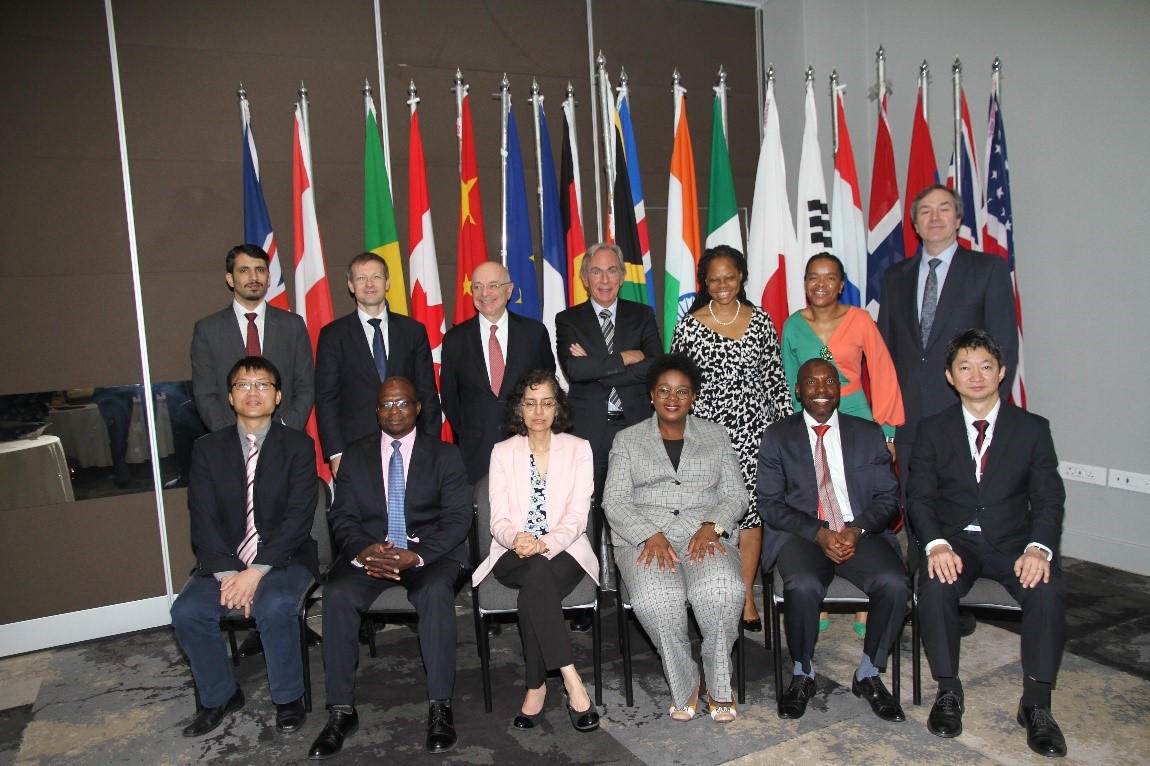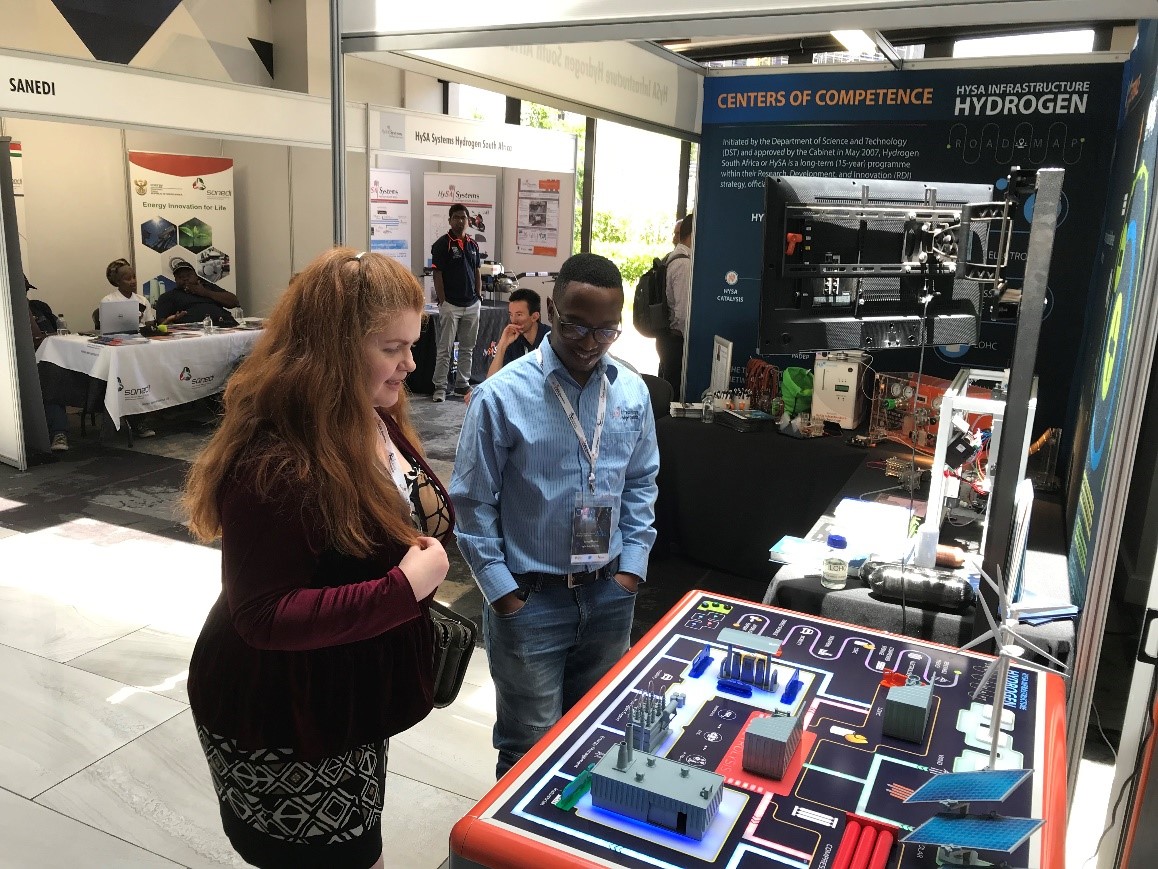30th International Partnerships for Hydrogen and Fuel Cells in the Economy (IPHE)

South Africa’s Hydrogen South Africa (HySA) flagship initiative is set to transition to a manufacturing capability, as the country looks to grow the local hydrogen fuel cell (HFC) market and become a significant player in a global HFC sector, which is projected to generate trillions of dollars in revenue. This was revealed during the 30th International Partnerships for Hydrogen and Fuel Cells in the Economy (IPHE) Steering Committee Meetings hosted by the Department of Science and Technology (DST) and the South African Agency for Science and Technology Advancement (SAASTA) from the 4 to 7 December 2018 at the University of Pretoria and The Capital Menlyn Maine in Pretoria.
Globally, the fuel cell market is growing and is estimated to be a multi-billion industry, with research indicating that the global fuel cell industry reached $2, 2 billion in revenue in 2014 and $3,6 billion in 2016, with countries such as Japan, China and the USA at the forefront of innovation in this industry. This is in line with the DST’s Ten-year Innovation Plan’s prediction of this market reaching a multi-billion dollar international industry.
Comprising of 18 member countries and the European Commission, the IPHE serves as a mechanism to organise and implement effective and focused international research and development, demonstration and deployment activities related to HFC technologies. It also provides a forum for sharing best practices on initiatives, policies, regulations and standards, to accelerate the widespread deployment of HFCs in the economy and enable energy, economic and environmental security worldwide.
This was a rare opportunity for South Africa, the second time in the history of the IPHE, and prioritised the strengthening of South Africa’s inter-governmental collaborations, research and development (R&D) education and outreach related to HFC technologies and increasing the role of HFC in the local economy. DST, Energy, Trade and Industry, Transport and Mineral Resources are key governmental departments in promoting HFC technologies and the Inter-Governmental Roundtable provided an opportunity for senior officials from these ministries to engage IPHE delegates on specific issues relevant to South Africa (e.g., policies, programmes, initiatives, demonstration projects, research focus) in a closed meeting environment allowing for detailed discussions. Besides its role in the beneficiation strategy, the HySA programme is further likely to contribute to a range of solutions in the energy mix solutions as part of a long-term energy solution to the energy challenge and the recently launched Green Transport through fuel cell vehicles.

IPHE_PTA_HySA (72) – Ms Stephanie Byham from USA interacts with Mr Samuel Modise from HySA Infrastructure at North West University.
South Africa’s Hydrogen South Africa (HySA) flagship initiative is set to transition to a manufacturing capability, as the country looks to grow the local hydrogen fuel cell (HFC) market and become a significant player in a global HFC sector, which is projected to generate trillions of dollars in revenue. This was revealed during the 30th International Partnerships for Hydrogen and Fuel Cells in the Economy (IPHE) Steering Committee Meetings hosted by the Department of Science and Technology (DST) and the South African Agency for Science and Technology Advancement (SAASTA) from the 4 to 7 December 2018 at the University of Pretoria and The Capital Menlyn Maine in Pretoria.
Globally, the fuel cell market is growing and is estimated to be a multi-billion industry, with research indicating that the global fuel cell industry reached $2, 2 billion in revenue in 2014 and $3,6 billion in 2016, with countries such as Japan, China and the USA at the forefront of innovation in this industry. This is in line with the DST’s Ten-year Innovation Plan’s prediction of this market reaching a multi-billion dollar international industry.
Comprising of 18 member countries and the European Commission, the IPHE serves as a mechanism to organise and implement effective and focused international research and development, demonstration and deployment activities related to HFC technologies. It also provides a forum for sharing best practices on initiatives, policies, regulations and standards, to accelerate the widespread deployment of HFCs in the economy and enable energy, economic and environmental security worldwide.
This was a rare opportunity for South Africa, the second time in the history of the IPHE, and prioritised the strengthening of South Africa’s inter-governmental collaborations, research and development (R&D) education and outreach related to HFC technologies and increasing the role of HFC in the local economy. DST, Energy, Trade and Industry, Transport and Mineral Resources are key governmental departments in promoting HFC technologies and the Inter-Governmental Roundtable provided an opportunity for senior officials from these ministries to engage IPHE delegates on specific issues relevant to South Africa (e.g., policies, programmes, initiatives, demonstration projects, research focus) in a closed meeting environment allowing for detailed discussions. Besides its role in the beneficiation strategy, the HySA programme is further likely to contribute to a range of solutions in the energy mix solutions as part of a long-term energy solution to the energy challenge and the recently launched Green Transport through fuel cell vehicles.
Providing a global context, Dr Sunita Satyapal, said their objective was to foster global collaborations, accelerate progress and enable widespread deployment of HFC technologies across sectors. IPHE focuses on energy security, resilience, emissions reduction (carbon and air pollutants) and economic prosperity. “IPHE members collectively invest nearly $1 billion a year in HFCs. There are 10 000 commercial fuel cells cars and over a quarter of a billion HFC stationary systems that can operate directly with natural gas,” affirmed Dr Satyapal. According to Dr Satyapal, the industry projected the potential of two and half trillion dollars in revenues just for hydrogen fuel cells, creating 30 million jobs worldwide. Representing industry at forum were Anglo-American, Impala Platinum Limited and ENGIE, a global energy provider that operates in 70 countries with 155 000 employees, committed to a long-term innovation solution.
The forum was concluded with DST Minister Mmamoloko Kubayi-Ngubane’s meeting with a select group of IPHE delegates before they embarked on site visits to Mintek, Chamber of Mines, Impala Platinum Refineries, Poelano High School, HySA Infrastructure Centre of Competence – North West University and Mponeng Mine. Minister Kubayi-Ngubane assured the IPHE members that South Africa had made a commitment to reduce green emissions by 34% in 2020 and 42% by 2025. The Minister indicated that South Africa should be working towards developing a hydrogen and fuel cell technology plant.

 The South Africa Agency for Science and Technology Advancement (SAASTA) is a business unit of the
The South Africa Agency for Science and Technology Advancement (SAASTA) is a business unit of the